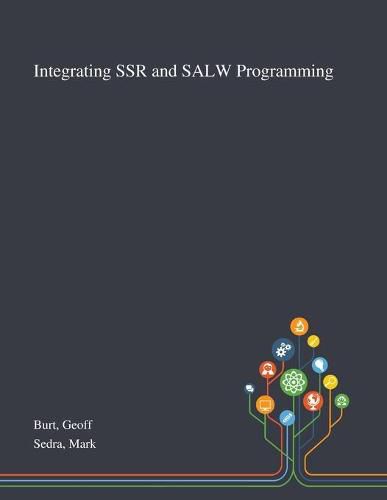Readings Newsletter
Become a Readings Member to make your shopping experience even easier.
Sign in or sign up for free!
You’re not far away from qualifying for FREE standard shipping within Australia
You’ve qualified for FREE standard shipping within Australia
The cart is loading…






This title is printed to order. This book may have been self-published. If so, we cannot guarantee the quality of the content. In the main most books will have gone through the editing process however some may not. We therefore suggest that you be aware of this before ordering this book. If in doubt check either the author or publisher’s details as we are unable to accept any returns unless they are faulty. Please contact us if you have any questions.
Security sector reform (SSR) and small arms and lights weapons (SALW) reduction and control programmes have become staples of peacebuilding policy and practice in fragile, failed and conflict-affected states (FFCAS). There is wide agreement in the peacebuilding field that the two areas are intricately interconnected and mutually reinforcing. However, this consensus has rarely translated into integrated programming on the ground. Drawing on a diverse set of case studies, this paper presents a renewed argument for robust integration of SSR and SALW programming. The failure to exploit innate synergies between the two areas in the field has not merely resulted in missed opportunities to leverage scarce resources and capacity, but has caused significant programmatic setbacks that have harmed wider prospects for peace and stability. With the SSR model itself in a period of conceptual transition, the time is ripe for innovation. A renewed emphasis on integrating SSR and SALW programming in FFCAS, while not a wholly new idea, represents a potential avenue for change that could deliver significant dividends in the field. The paper offers some preliminary ideas on how to achieve this renewed integration in practice. This work was published by Saint Philip Street Press pursuant to a Creative Commons license permitting commercial use. All rights not granted by the work’s license are retained by the author or authors.
$9.00 standard shipping within Australia
FREE standard shipping within Australia for orders over $100.00
Express & International shipping calculated at checkout
This title is printed to order. This book may have been self-published. If so, we cannot guarantee the quality of the content. In the main most books will have gone through the editing process however some may not. We therefore suggest that you be aware of this before ordering this book. If in doubt check either the author or publisher’s details as we are unable to accept any returns unless they are faulty. Please contact us if you have any questions.
Security sector reform (SSR) and small arms and lights weapons (SALW) reduction and control programmes have become staples of peacebuilding policy and practice in fragile, failed and conflict-affected states (FFCAS). There is wide agreement in the peacebuilding field that the two areas are intricately interconnected and mutually reinforcing. However, this consensus has rarely translated into integrated programming on the ground. Drawing on a diverse set of case studies, this paper presents a renewed argument for robust integration of SSR and SALW programming. The failure to exploit innate synergies between the two areas in the field has not merely resulted in missed opportunities to leverage scarce resources and capacity, but has caused significant programmatic setbacks that have harmed wider prospects for peace and stability. With the SSR model itself in a period of conceptual transition, the time is ripe for innovation. A renewed emphasis on integrating SSR and SALW programming in FFCAS, while not a wholly new idea, represents a potential avenue for change that could deliver significant dividends in the field. The paper offers some preliminary ideas on how to achieve this renewed integration in practice. This work was published by Saint Philip Street Press pursuant to a Creative Commons license permitting commercial use. All rights not granted by the work’s license are retained by the author or authors.